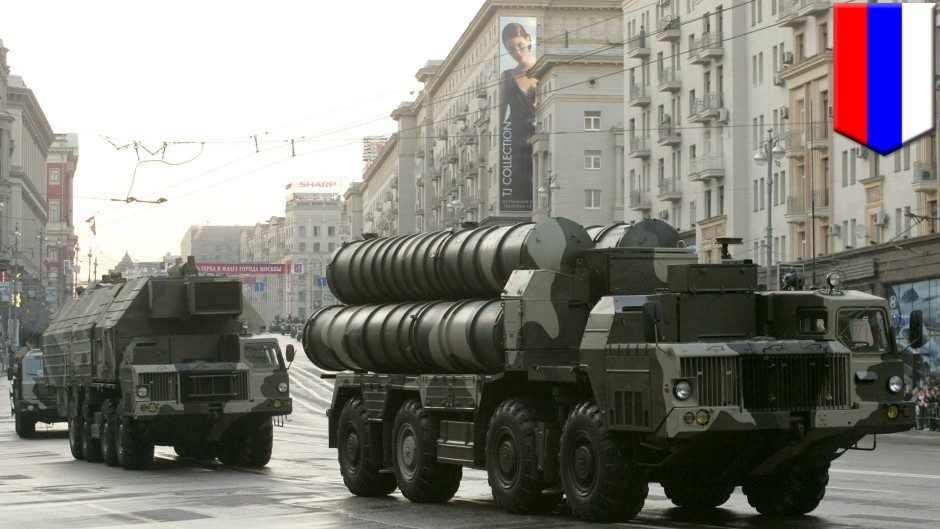President Vladimir Putin of Russia thinks Iran has rejoined the family of nations. How else can we explain his sale of sophisticated weapons to Tehran?
Russia announced on April 13 the lifting of its ban on the sale to Iran of S-300 anti-aircraft missiles. Iran had ordered them in 2007, but Russia halted the sale under international pressure.
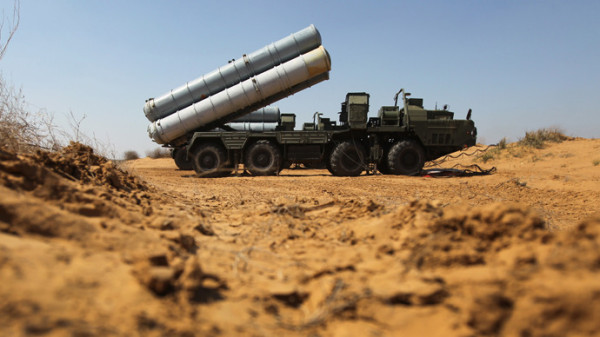
The 2007 deal on the delivery of five S-300 PMU-1 systems was put on hold by then-President Dmitry Medvedev in 2010, following a United Nations Security Council embargo on arms deliveries to Tehran, imposed over fears that Iran was developing nuclear weapons.
Putin now defends his decision to sell the system. Moscow has stated that a preliminary agreement between the P5+1 world powers and Tehran over Iran’s nuclear program reached earlier this month makes the ban no longer relevant.
“We froze the fulfillment of this contract unilaterally and now, after there’s been positive progress on the Iranian nuclear path, we don’t see any reason to retain the ban,” Putin stated on April 16. He claimed that the Iranians “are demonstrating great flexibility and clear desire to reach compromises on the Iranian nuclear program.”
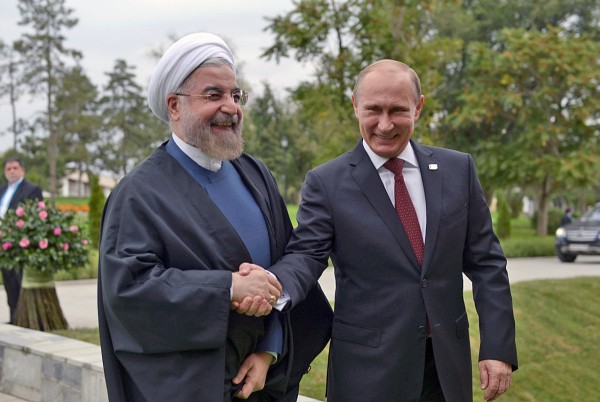
The missiles are capable of simultaneously tracking and intercepting dozens of airborne targets at ranges of up to 150 kilometers. They may be delivered to Iran as early as this year.
Benjamin Netanyahu, Israel’s prime minister, on April 14 told President Putin of his “grave concern” regarding the sale. Putin reportedly replied that the S-300 served defensive purposes only and didn’t constitute a threat to Israel’s security.
However, Amos Gilad, head of the Israeli Defense Ministry’s political security division, maintains that it is not a defensive weapon, but rather one “which encourages aggression and the violent methods of the Iranian government.”
Israel fears Iran could supply the missile defense systems to Syria or Hezbollah, diluting Israel’s air supremacy over Syria and Lebanon.
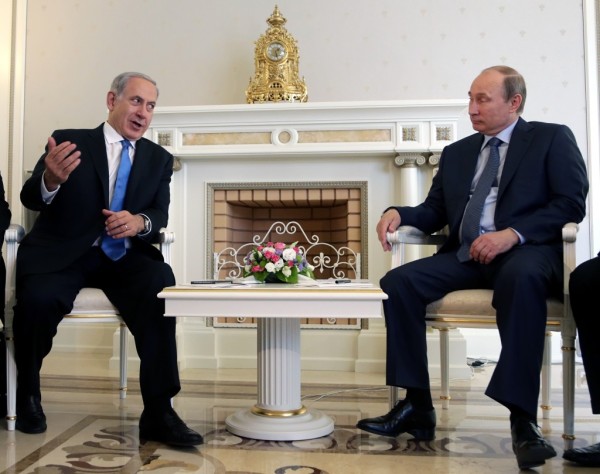
Zvi Magen, a former Israeli ambassador to both Kiev and Moscow, has said that Israel has benefited considerably from the ties with Russia in recent years. “They took our regional interests into consideration and for eight years didn’t supply the S-300 to Iran.”
Israel has been careful to remain neutral in the Ukraine conflict, refusing to support American and European efforts to denounce Russia’s annexation of Crimea. It didn’t join American and European Union sanctions against Putin, and in turn Moscow didn’t criticize Israel’s actions in the Gaza Strip last summer.
Some Israeli officials fear that may now be changing as the Kremlin rebuilds its standing in the Middle East.
Israel has announced it will not send a representative to Russia for the ceremonies marking 70 years since its victory over Germany, set to take place in Moscow’s Red Square next month. Putin, in turn, has ramped up the rhetoric, warning Israel not to supply weapons to Ukraine.
In the past, the Soviet Union was a major arms supplier to the “anti-imperialist” Arab nations, especially Egypt and Syria, from the mid-1950s onward.
Beginning in 1955, the Egyptian armed forces depended heavily on the Soviet Union, which provided Egypt with grants and loans to pay for equipment, training, and the services of large numbers of military advisers. In the early 1960s, the Soviet Union began furnishing up-to-date MiG-21 fighter aircraft and T-54 tanks.
The overall amount of Soviet military aid to Egypt between the Sinai War of 1956 and the 1967 Six Day War has been estimated at $1.5 billion.
By the early 1970s, the number of Soviet personnel in Egypt had risen to nearly 20,000. They participated in operational decisions and served at the battalion and sometimes even company levels.
However, following the death of Egyptian President Gamel Abdel Nasser in 1970, Anwar Sadat, his successor, expelled Soviet advisers two years later. The years following the 1973 Yom Kippur War saw Cairo lessen its dependence on East bloc arms. Today, most of its supplies come from the United States and other western countries.
Syria, however, under both Hafez al-Assad and his son, Bashar, continued to rely heavily on Soviet, and now Russian, military weapons. After the June 1967 war, Soviet military aid to Syria grew substantially and the Soviets established a sizable military presence there.
The Congressional Research Service noted in 2008 that Soviet military sales to Syria in the 1970s and 1980s were so extensive that they accounted for 90 percent of all military arms exports from the Soviet Union, making the Soviet Union the main supplier of arms for Syria.
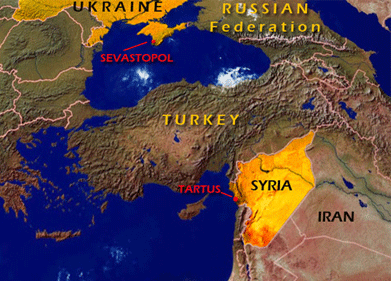
Russia remained Syria’s main arms supplier after the fall of the Soviet Union, when Moscow absolved Syria of $9.8 billion of its $13.4 billion debt in exchange for making Tartus a permanent Russian naval base in the Mediterranean. Currently, Syria accounts for about 10 percent of Russian arms sales.
Between 2000 and 2010, when Syria was subject to a European Union arms embargo, Russia and other states shipped at least $2.2 billion worth of arms and munitions to Damascus. Currently, 10 percent of Russian global arms shipments head to Syria, and contracts are worth about $1.5 billion.
Syria in the past few years has obtained modern anti-tank and anti-air missile systems that will further improve its combat capabilities, including MiG fighter jets, tactical missile systems, and submarines.
The Kremlin has also reinforced the Assad regime politically in the United Nations.
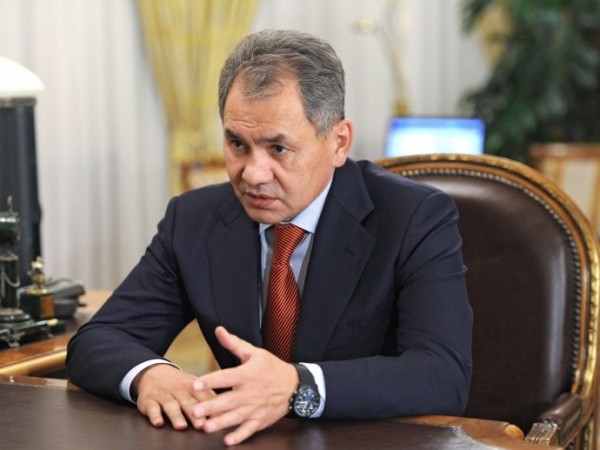
Will Iran and Russia now develop a similar relationship? Russian Defense Minister Sergei Shoigu traveled to Tehran in January to discuss increasing defense cooperation and arms trade with the Islamic republic.
Moscow has also negotiated an oil-for-goods exchange with Iran that would involve acquiring some 500,000 barrels of Iranian oil a day in exchange for Russian equipment and goods.
Recent sanctions against Russia may have driven the two countries closer together, and the the S-300 deal may be an effective way for Moscow to retaliate against the West.
Henry Srebrnik is a professor of political science at the University of Prince Edward Island.

